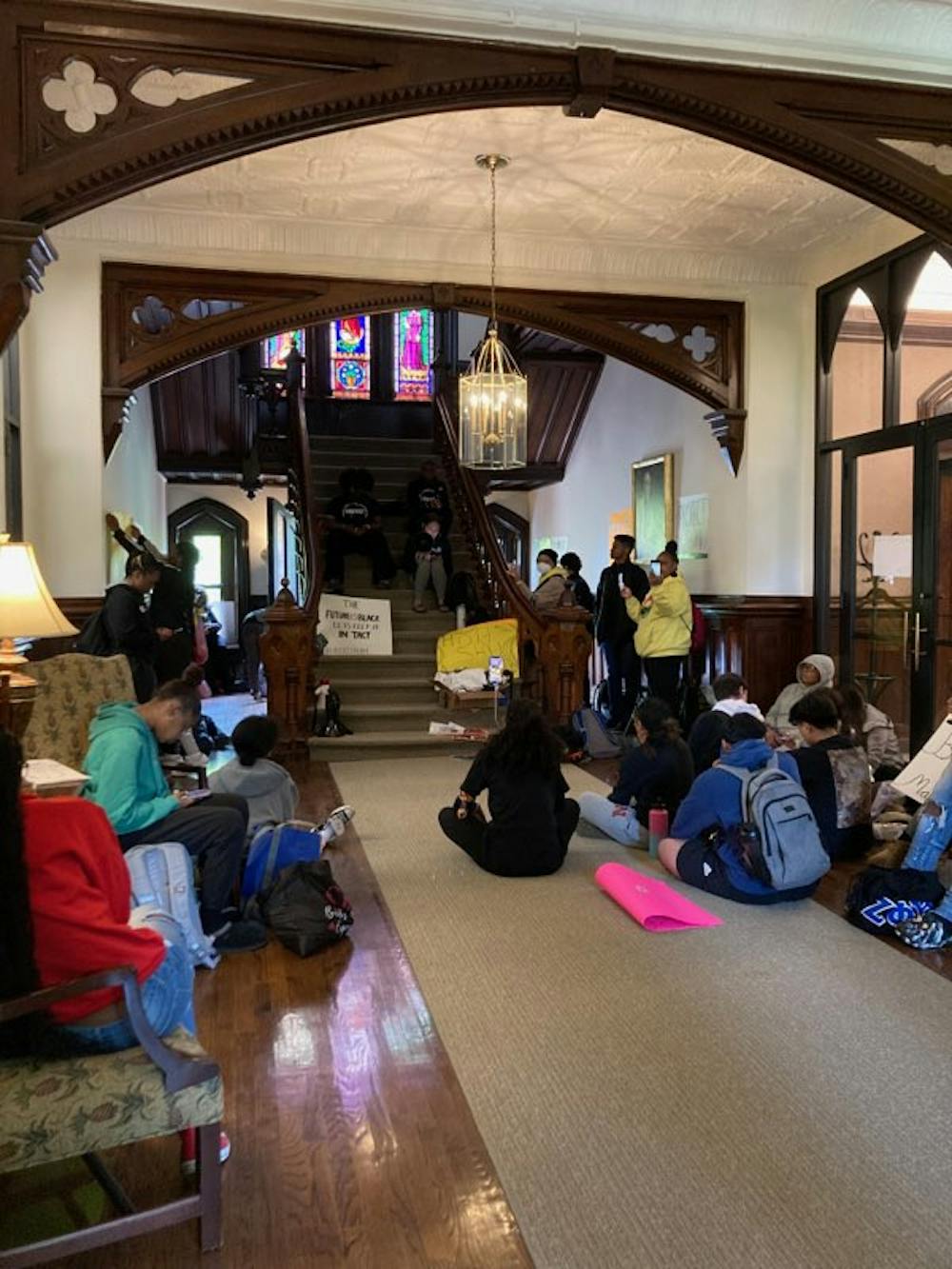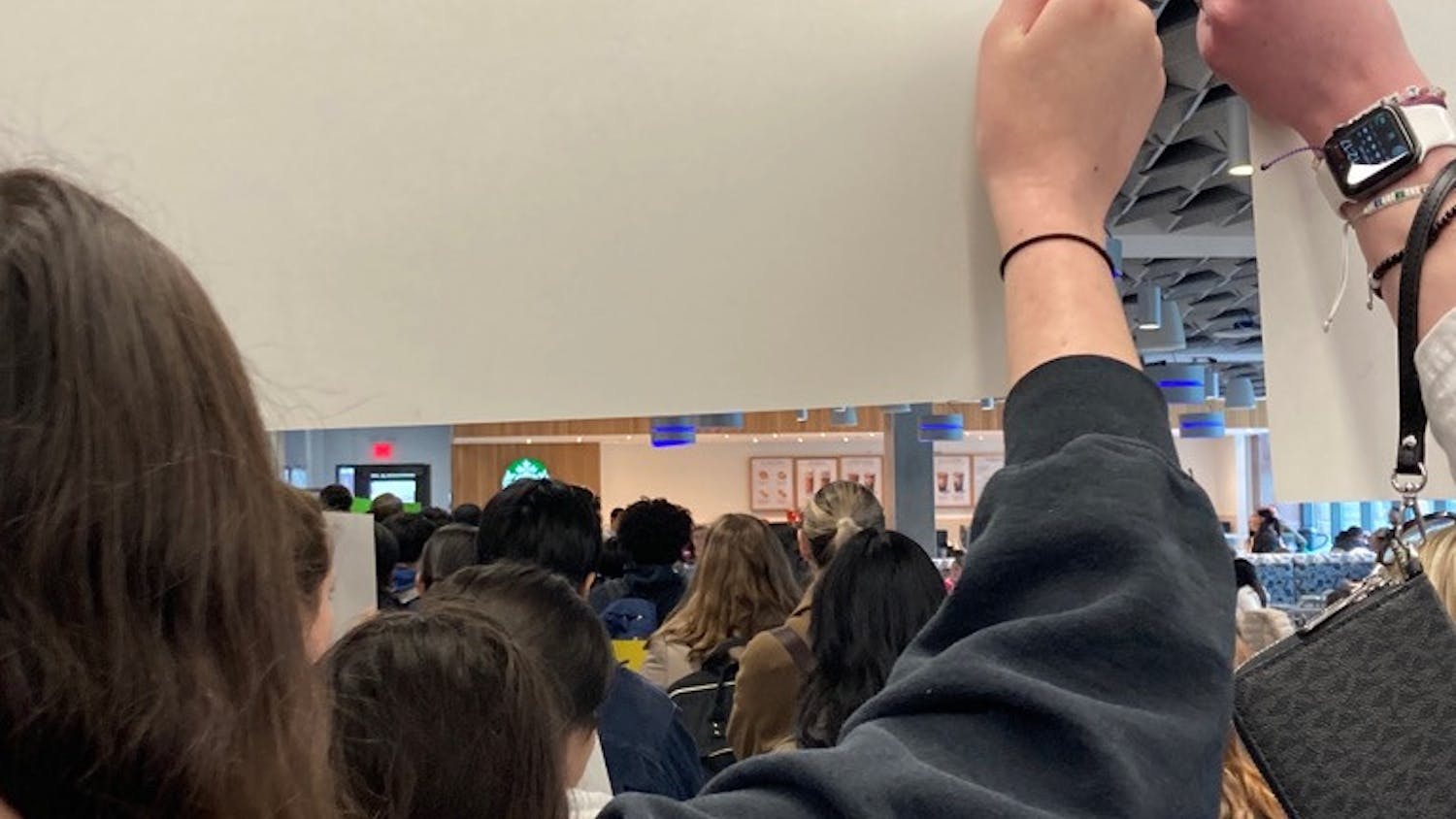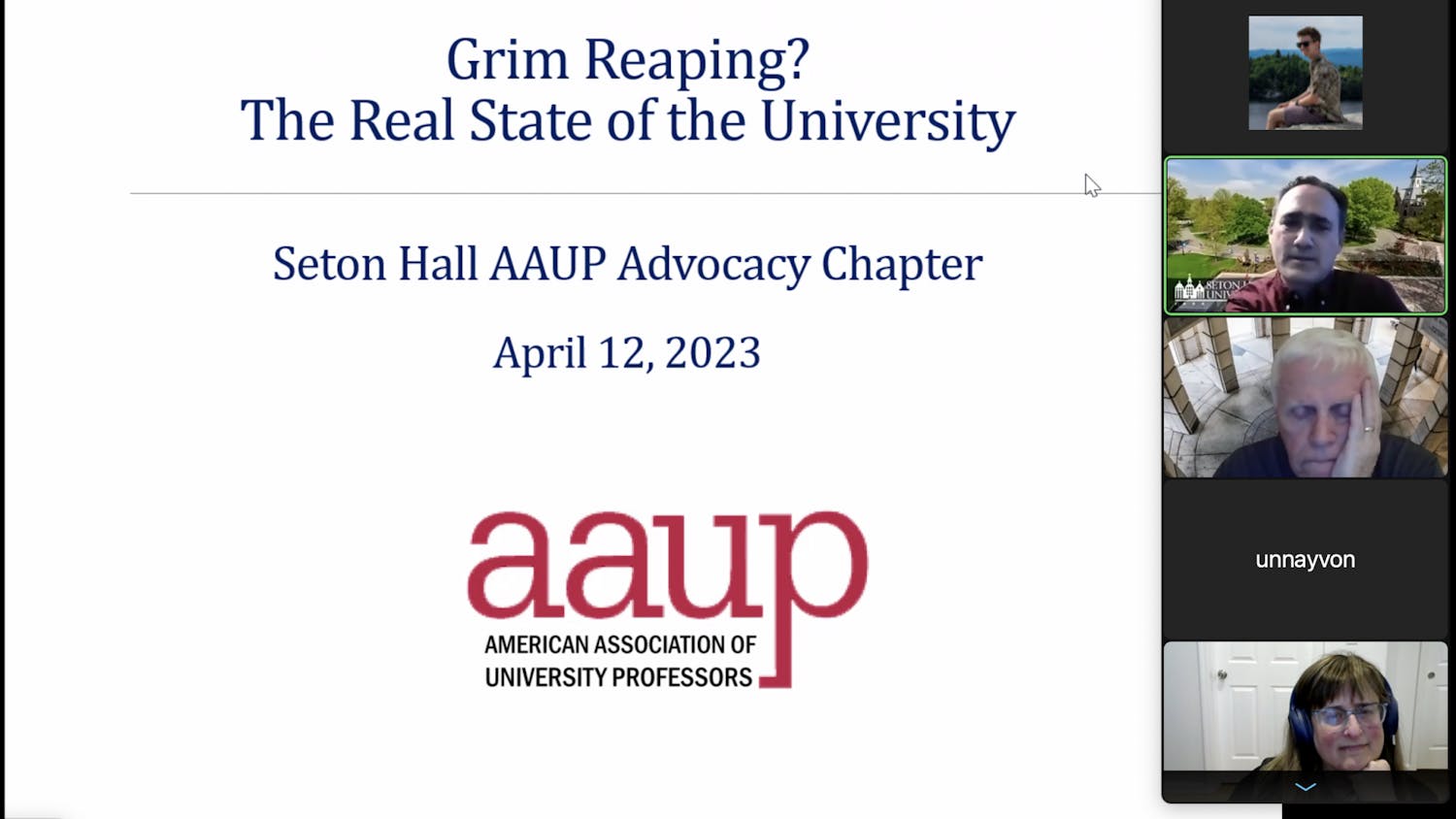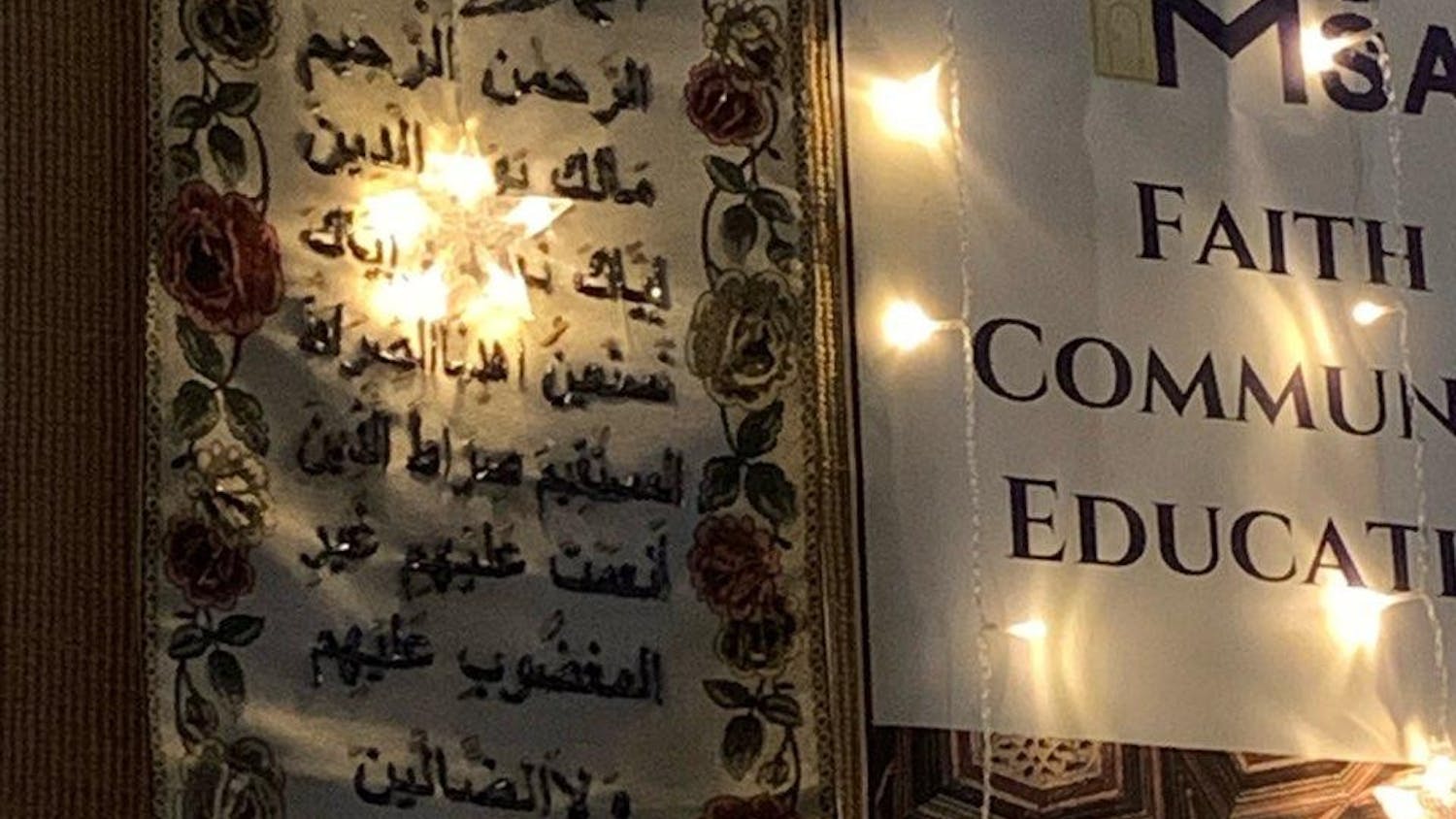Reverend Forrest Pritchett, the Interim Director of Africana studies and the special assistant to the Provost, released a statement this evening in support of the “Protect AFAM” movement.
In his open letter, Pritchett said that the students’ sit-in was the “last option.”
“I stand in full solidarity with the demands of the Protect AFAM Collective and Movement, along with an unyielding demand for amnesty in them expressing their basic human right to protest for change,” Pritchett wrote.
At noon yesterday, Protect AFAM started a protest in support of the University's Africana Studies program, with demands to hire full-time faculty, for the department to be reinstated and fully funded by Seton Hall and more.
At the time of this article, students remain inside President’s Hall. They have brought in speakers to continue advocating for their cause on their Instagram, @protect.afam.shu.
The previous Africana studies director, Kelly Harris, came to speak with students in support of the protests. Videos can be found of Harris’ words on Protect AFAM’s Instagram.
This morning, the Protect AFAM Movement released a statement in response to President Nyre’s email from Wednesday evening. It said they “did not receive a message or response from President Nyre or the University’s Provost” for months.
“In fact, President Nyre directly said to us: ‘I do not respond to demands,’ when asked about his position with regard to the program in December 2022,” the statement alleged.
Reverend Pritchett’s open letter mirrored the statement, as he wrote students “have yet to speak to Provost Passerini or President Nyre directly.”
The Protect AFAM statement also alleged that a security guard named Trace Herzog said he received orders from administration “to take repeated photographs of students.”
This afternoon, the West Indian Student Organization and the Black Student Union, both released statements of support for the Protect AFAM protests.
According to Seton Hall Spokesperson Laurie Pine, the University has “welcomed” student expressions of their concerns and “have continued to listen.”
“We are also deeply committed to the critical discipline of Africana Studies and underscore how vital it is for all our students, independent of their major field of study, to be able to learn about their (and other) cultures, histories, and identities,” Pine said.
“We encourage everyone to review the steps the University has taken to support Africana Studies and more fully integrate diversity, equity and inclusion into life on our campuses,” Pine said. “We will continue to be open to reasonable dialogue to find ways to help the program succeed.”
Check back soon for more updates.
Dareen Abukwaik can be reached at dareen.abukwaik@student.shu.edu.





